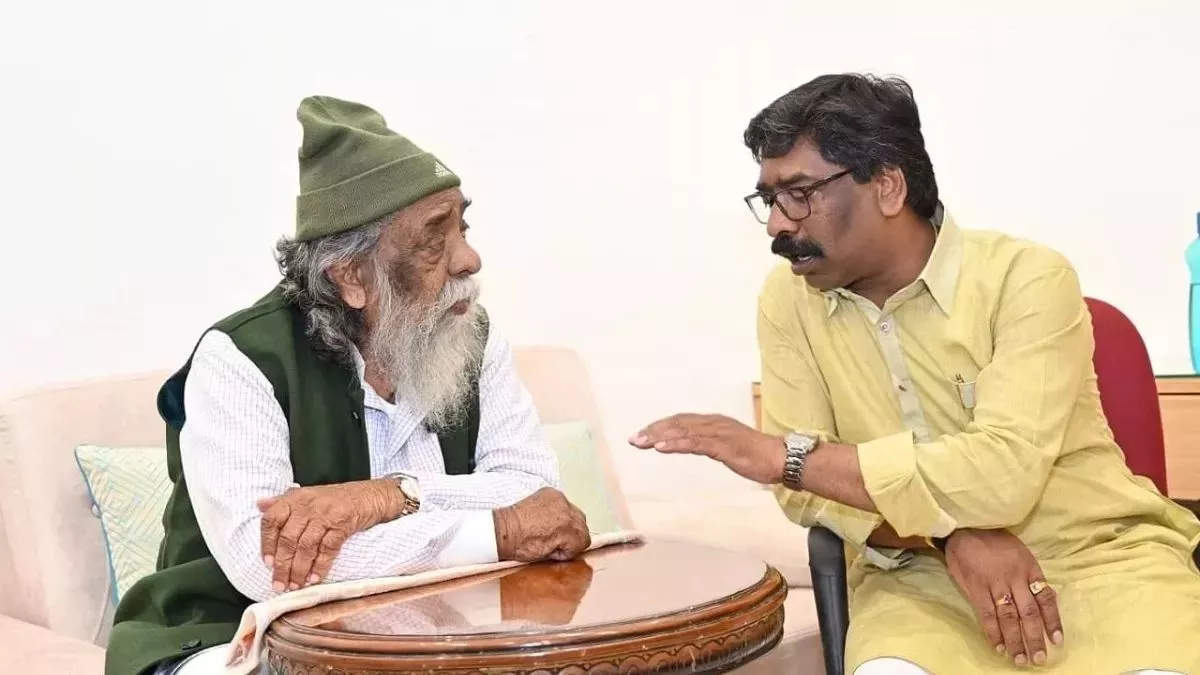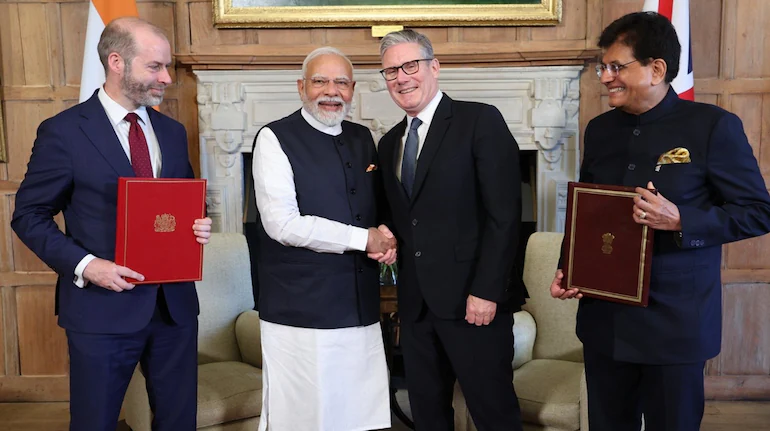Why in the News?
- Shibu Soren, a towering figure in Jharkhand’s political history and a key tribal rights activist, passed away recently.
- His life journey from championing Adivasi identity to spearheading the movement for the separate state of Jharkhand, is remarkable.
- His career symbolised a blend of mass mobilisation, tribal assertion, and strategic political negotiation.
Key Highlights
- Early Mobilisation for Jharkhand (1950s–1970s)
- The Jharkhand movement began in the 1950s, led by Jaipal Singh Munda and others, calling for a separate tribal identity and state.
- The region’s demand stemmed from economic, cultural, and political exclusion.
- The Jharkhand Party’s decline in the 1970s created a vacuum for new leadership.
- Shibu Soren’s Entry and Rise (1970s–1980s)
- Shibu Soren formed the Jharkhand Mukti Morcha (JMM) in 1972, focusing on land rights, tribal identity, and anti-outsider politics.
- The JMM challenged zamindars, moneylenders, and outsiders, calling for land redistribution and an end to exploitation.
- His popular slogan: “We must eat all year round. So far, the Santhal worked for twelve months, and the farmer reaped the harvest.”
- Land Question and Assertion of Identity (1980s)
- The JMM ran grassroots campaigns to assert tribal land rights and push back against forced displacement and dispossession.
- “Bhoomi Mukti Andolan” (Land Liberation Movement) aimed at regaining tribal lands illegally taken over by outsiders.
- The party gave the movement a cultural and political face, emphasising tribal dignity and heritage.
- Transition into Electoral Politics (1980s–1990s)
- In the 1980s, the JMM began contesting elections, and Soren emerged as a political heavyweight.
- He aligned strategically with the Congress and other parties to gain national relevance.
- In 1993, the JMM bribery scandal (support to the Narasimha Rao government) tainted his image but did not end his political journey.
- Jharkhand Statehood and Aftermath (2000 onwards)
- After decades of struggle, Jharkhand was formed on November 15, 2000, fulfilling a long-standing demand.
- Soren became a key figure in state politics and served as Chief Minister multiple times, though never for a full term.
- In later years, he took a moderate stance, choosing negotiation over confrontation.
Implications
- Tribal Identity and Assertion
- Soren’s movement brought tribal issues to the national spotlight.
- His work inspired grassroots mobilisation based on land rights and cultural pride.
- JMM played a major role in defining tribal politics in eastern India.
- State Formation Politics
- Jharkhand’s creation reflected the success of peaceful, sustained democratic movements.
- It also demonstrated how identity-based demands could be integrated into mainstream politics.
- The statehood movement highlighted the limits of centralised governance in addressing regional concerns.
- Electoral and Alliance Politics
- Soren adapted to the shifting political landscape by aligning with national parties.
- This gave JMM greater negotiating power, but also brought challenges of dilution of tribal-centric agendas.
- The balance between ideology and pragmatism became central to his leadership.
- Land and Economic Justice
- His legacy underscores the critical role of land in tribal society.
- The Bhoomi Mukti Andolan shaped the debate on land alienation, forest rights, and agrarian justice.
- His efforts inspired other tribal movements across India.
- Legacy and Public Memory
- Shibu Soren is remembered as a symbol of tribal empowerment.
- His evolution from a radical to a moderate reflects the realpolitik of democratic India.
- His journey is a case study in how grassroots leaders navigate institutional politics.
Challenges and Way Forward
| Challenges | Way Forward |
| Dilution of tribal concerns in coalition politics | Establish institutional mechanisms for tribal consultation in policy-making |
| Unequal land distribution and continuing land alienation | Accelerate land reforms and enforce tribal land protection laws |
| Disparity in tribal representation in state bureaucracy | Ensure proportional representation and capacity-building initiatives |
| Fragmented adivasi movements in other states | Strengthen pan-tribal solidarity across regions with shared issues |
| Balancing tradition and development in tribal regions | Promote culturally sensitive development models |
Conclusion
Shibu Soren’s political life was deeply intertwined with the evolution of Jharkhand from a marginalised tribal region to a full-fledged state. His work redefined how identity politics, grassroots mobilisation, and democratic negotiation could coexist. Despite controversies, his contribution to the empowerment of Adivasis and to the shaping of Jharkhand’s identity remains foundational. His legacy is a reminder that meaningful change is often a long journey, built on persistence, adaptability, and rooted leadership.
| EnsureIAS Mains Question Q. Discuss the role of Shibu Soren in the socio-political empowerment of Adivasis in Jharkhand. How did his movement evolve from tribal rights to the demand for statehood? (250 words) |
| EnsureIAS Prelims Question Q. With reference to Shibu Soren’s political journey, consider the following statements: 1. He was associated with the Jharkhand Mukti Morcha (JMM) since its inception. 2. His early activism primarily focused on tribal rights and land alienation. 3. He played a key role in the creation of the separate state of Jharkhand. 4. He was never a part of mainstream politics and remained an activist throughout his career. Which of the above statements are correct? a. 1, 2, and 3 only Answer: a. 1, 2, and 3 only Explanation: |





